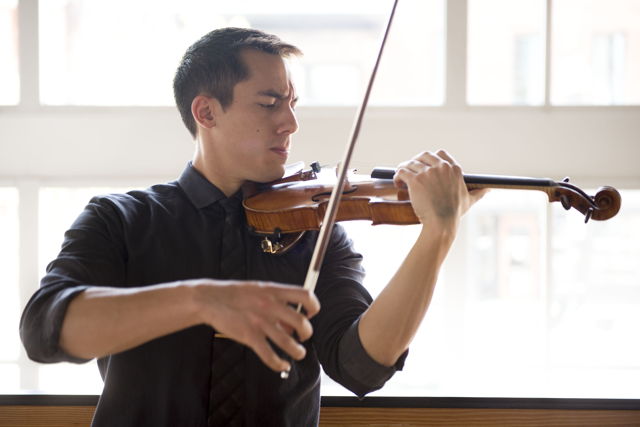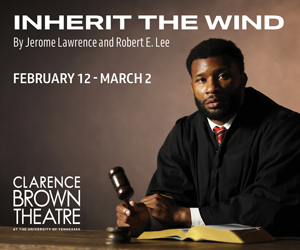After last weekend’s stellar final Masterworks concert appearance by outgoing concertmaster Gabriel Lefkowitz performing the Brahms Violin Concerto (see the review in the Knoxville Mercury), this week’s final Concertmaster Series events (“Gabriel Lefkowitz and Friends”) may have seemed a bit anticlimactic to many. Oddly, though, just the opposite was true. The event at the Knoxville Museum of Art—in its fifth season in total—revealed what is perhaps the single most important advance that has happened during Lefkowitz’s six seasons with the KSO.
From its inception, the Concertmaster Series was intended to add an additional layer of performances to the full orchestra and chamber orchestra programs with the original goal of attracting new audiences who might not otherwise attend a concert. By holding the events in an informal space such as the backroom of Remedy Coffee house in the Old City, it was thought that such a venue would make this possible. And, performing a mix of virtuosic violin works and chamber music, presented with Lefkowitz’s genuine friendliness and charisma, might intrigue those with eclectic tastes who were not KSO regulars.
However, it didn’t really work out that way. The audience that was attracted to the Concertmaster Series were, for the most part, the more serious dedicated listeners in the existing KSO audience, listeners looking for a variety of musical experiences, particularly if those experiences were heavy on the cultural influences. After the series moved to the more accessible KMA, the audience began to grow as word got out that these were intensely satisfying events.
Last night’s event (and tonight’s repeat which may be sold out) will be the last for Lefkowitz. During these five seasons, Lefkowitz has wowed and amazed the Concertmaster Series audience with his virtuosic technique on shorter encore-ish pieces, usually along with collaborative pianist Kevin Class. Last evening’s pieces included the Jascha Heifetz arrangement of George Gershwin’s Three Preludes, Dvořák’s Humoresque, Sibelius’ Valse, along with an intriguing work by the Baroque violinist/composer Heinrich Biber.
However, what may turn out to be the major accomplishment during Lefkowitz’s tenure is the overall ensemble excellence that he has inspired, either directly or indirectly. This certainly showed up in the single work on the second half of the program, Ernest Chausson’s Concerto for Violin, Piano, and String Quartet in D Major, Op. 24. [Gabriel Lefkowitz, violin; Kevin Class, piano; with the KSO Principal Quartet: Gordon Tsai and Edward Pulgar, violins; Kathryn Gawne, viola; and Andy Bryenton, cello]
The performance was as tight and focused as one could wish, but with a sensitivity and musicality that only comes from an ensemble that has become comfortable with itself and its purpose.
It’s obvious that Lefkowitz’s successor will have big shoes to fill—not just as a violinist capable of wowing with virtuosity, but also one who can continue inspiring his fellow players to greatness.






